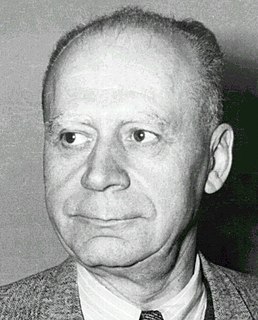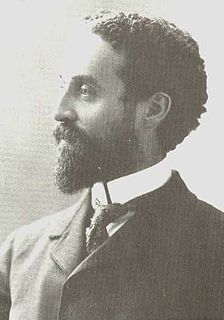A Quote by Charles Sanders Peirce
Our whole past experience is continually in our consciousness, though most of it sunk to a great depth of dimness. I think of consciousness as a bottomless lake, whose waters seem transparent, yet into which we can clearly see but a little way.
Related Quotes
I think of consciousness as a bottomless lake, whose waters seem transparent, yet into which we can clearly see but a little way.But in this water there are countless objects at different depths; and certain influences will give certain kinds of those objects an upward influence which may be intense enough and continue long enough to bring them into the upper visible layer. After the impulse ceases they commence to sink downwards.
Early in life, when I first saw waterlilies on the ripples of a lake, I didn't think they were flowers which grew from the water, but rather flowers which were mirrored from the shore into the lake. So many flowers grow in the silent waters of our souls, and they unfold their petals over the glaze of our consciousness: they grow from within us, but we think them reflections from the external world.
I believe consciousness is non-local and a big part of what we experience with near death and past lives. It's the consciousness that has come into us from other experiences and our consciousness that we remain aware of when we leave our bodies and they communicate with us through dreams, and even through drawings which I do a lot of work with myself.
In the field of consciousness research-and also in physics and astronomy-we are breaking past the cause-and-effect, mechanistic way of interpreting things. In the biological sciences, there is a vitalism coming in that goes much further toward positing a common universal consciousness of which our brain is simply an organ. Consciousness does not come from the brain. The brain is an organ of consciousness. It focuses consciousness and pulls it in and directs it through a time and space field. But the antecedent of that is the universal consciousness of which we are all just a part.
When we pause to think, we are compelled to admit the existence of consciousness as the primal and surest fact. What we know of the great world around is known through our states of consciousness, and if we seem to be living a merely objective life, amidst external things, it is because we have become oblivious of the real nature of experience.
Our business is to wake up. We have to find ways in which to detect the whole of reality in the one illusory part which our self-centered consciousness permits us to see. We must not live thoughtlessly, taking our illusion for the complete reality, but at the same time we must not live too thoughtfully in the sense of trying to escape from the dream state. We must be continuously on watch for ways in which we may enlarge our consciousness.
We live in a society that will send us to prison if we make use of time-honored sacred plants to explore our own consciousness. Yet surely the exploration and expansion of the miracle of our consciousness is the essence of what it is to be human? By demonstrating and persecuting whole areas of consciousness, we may be denying ourselves the next vital step in our own evolution.
I consider morals and aesthetics one and the same, for they cover only one impulse, one drive inherent in our consciousness - to bring our life and all our actions into a satisfactory relationship with the events of the world as our consciousness wants it to be, in harmony with our life and according to the laws of consciousness itself.
For me, consciousness is the most interesting unsolved problem of science, and, in fact, we may never know what it is about a particular arrangement of neurons that gives rise to consciousness. Our consciousness, like the air we breathe or like the passage of time, is central to our existence as intelligent beings.
Consciousness-one level is understanding where we are in space. Consciousness two is where we understand our position in society: who's top dog, who's underdog and who's in the middle. And type-three consciousness is simulating the future. And type-three consciousness, only humans have this ability to see far into the future.
Many quantum physics are realizing or hypothesizing that consciousness is not a byproduct of evolution as has been suggested. Or for that matter, an expression of our brains, although it expresses itself through our brains. But consciousness is the common ground of existence that ultimately differentiates into space, time, energy, information and matter. And the same consciousness is responsible for our thoughts, for our emotions and feelings, for our behaviors, for our personal relationships, for our social interactions, for the environments that we find ourselves in, and for our biology.







































